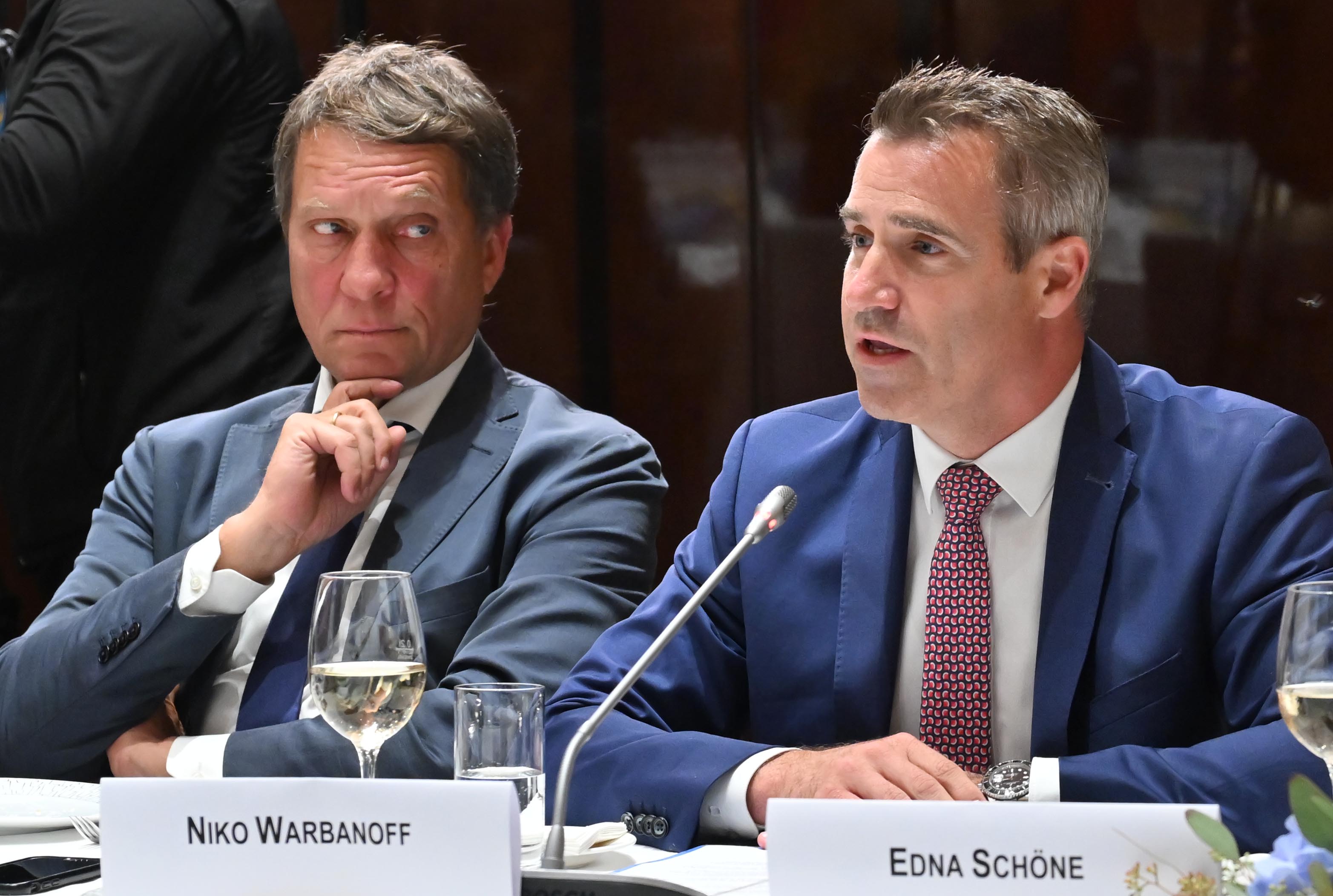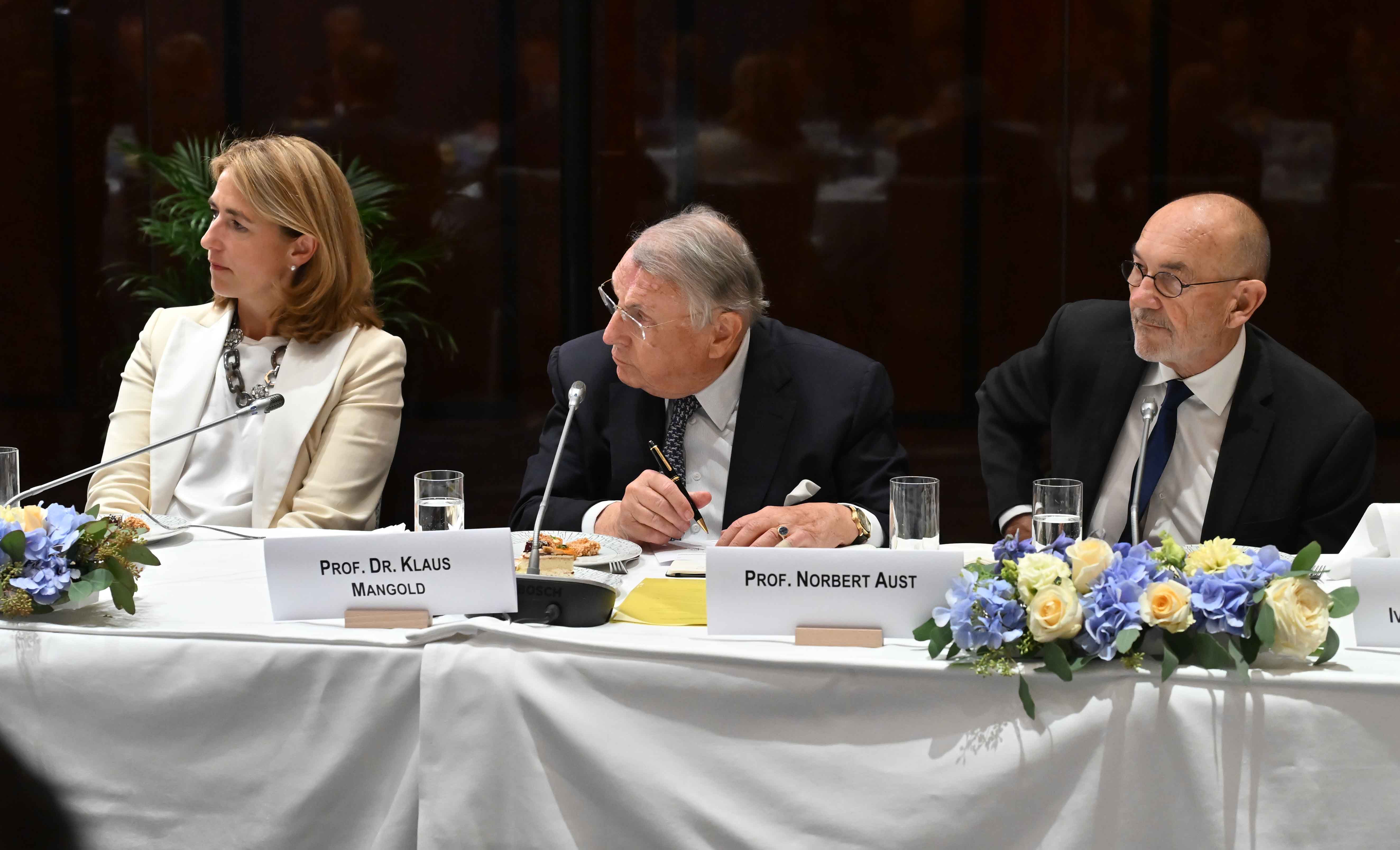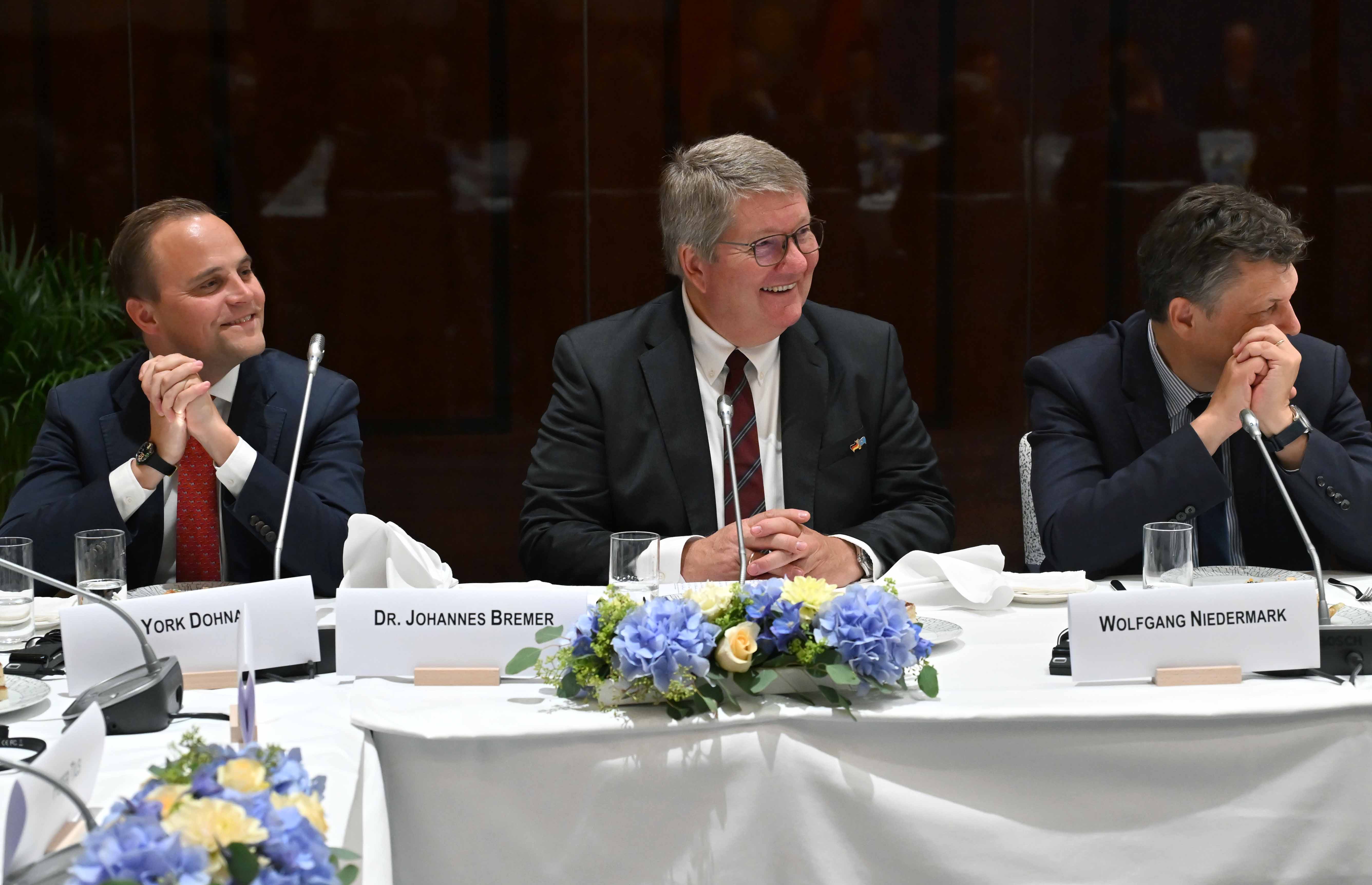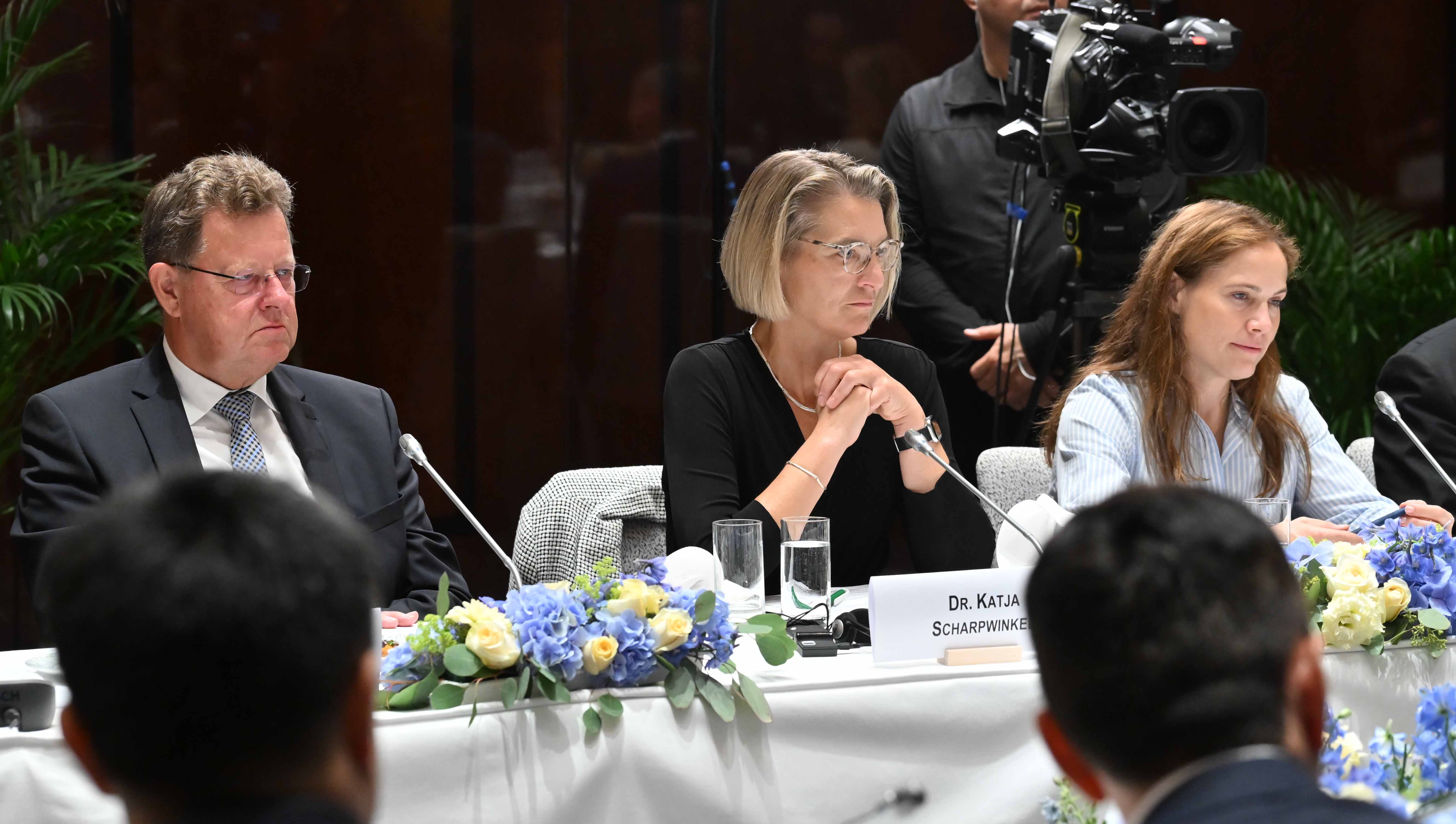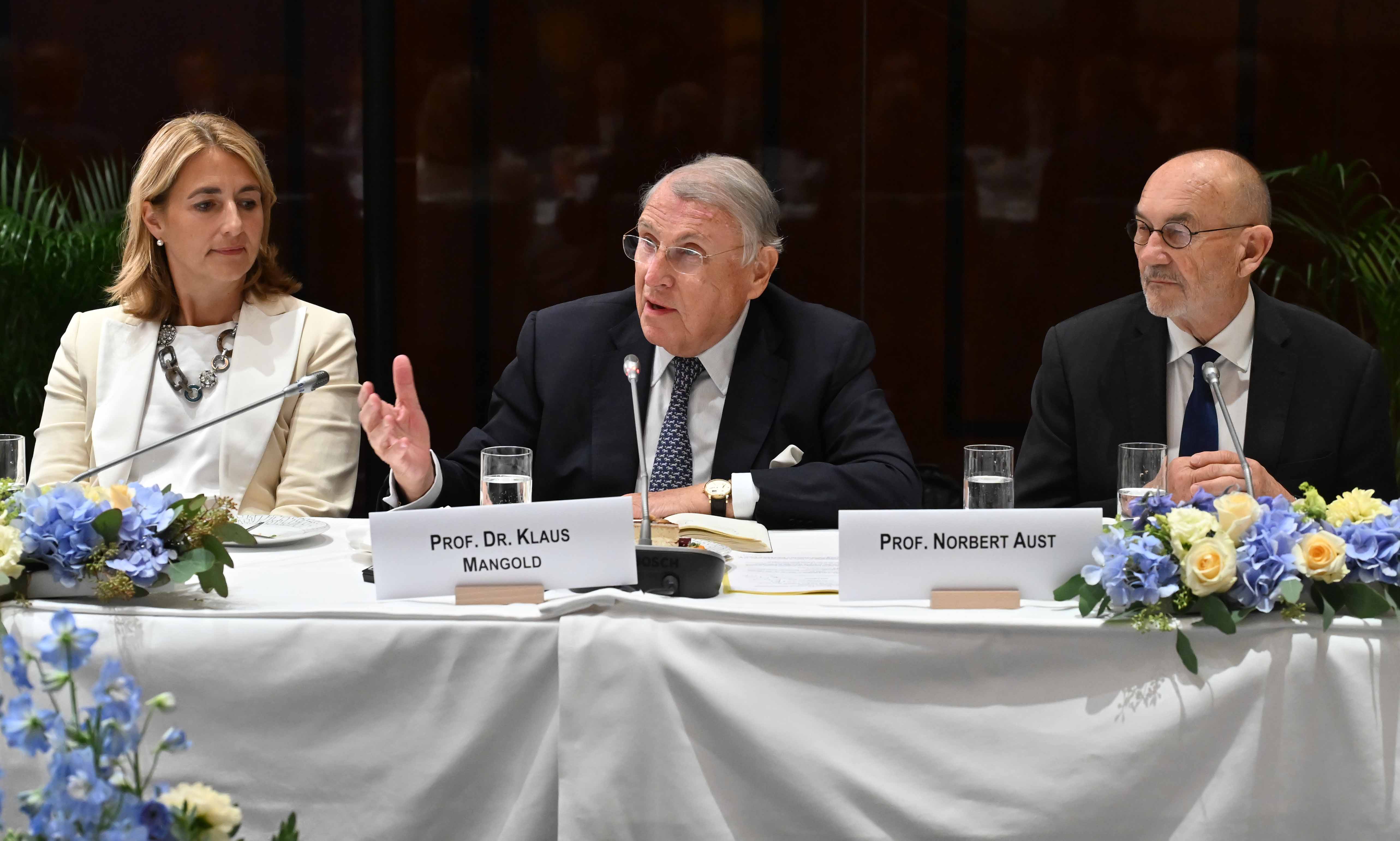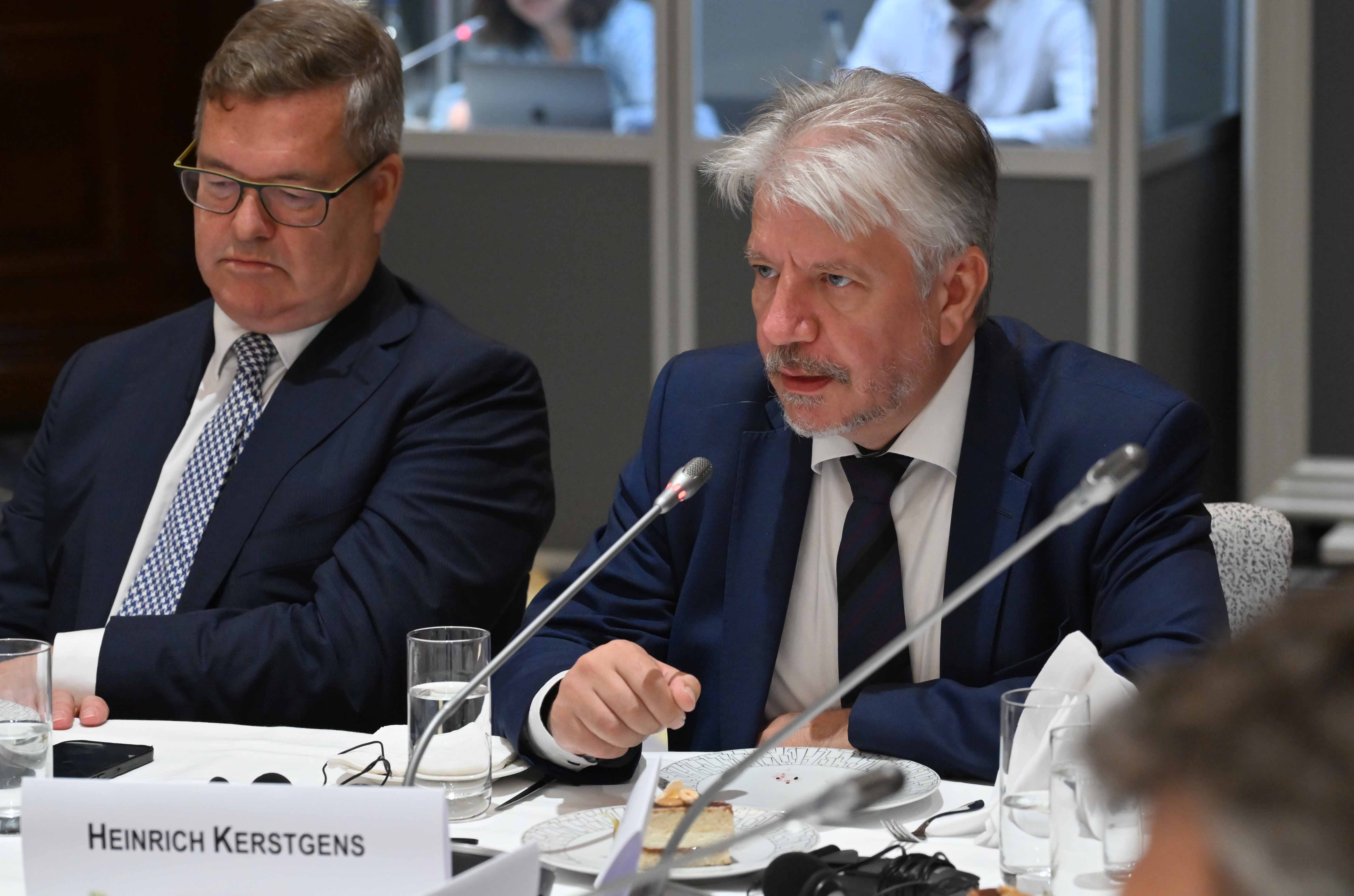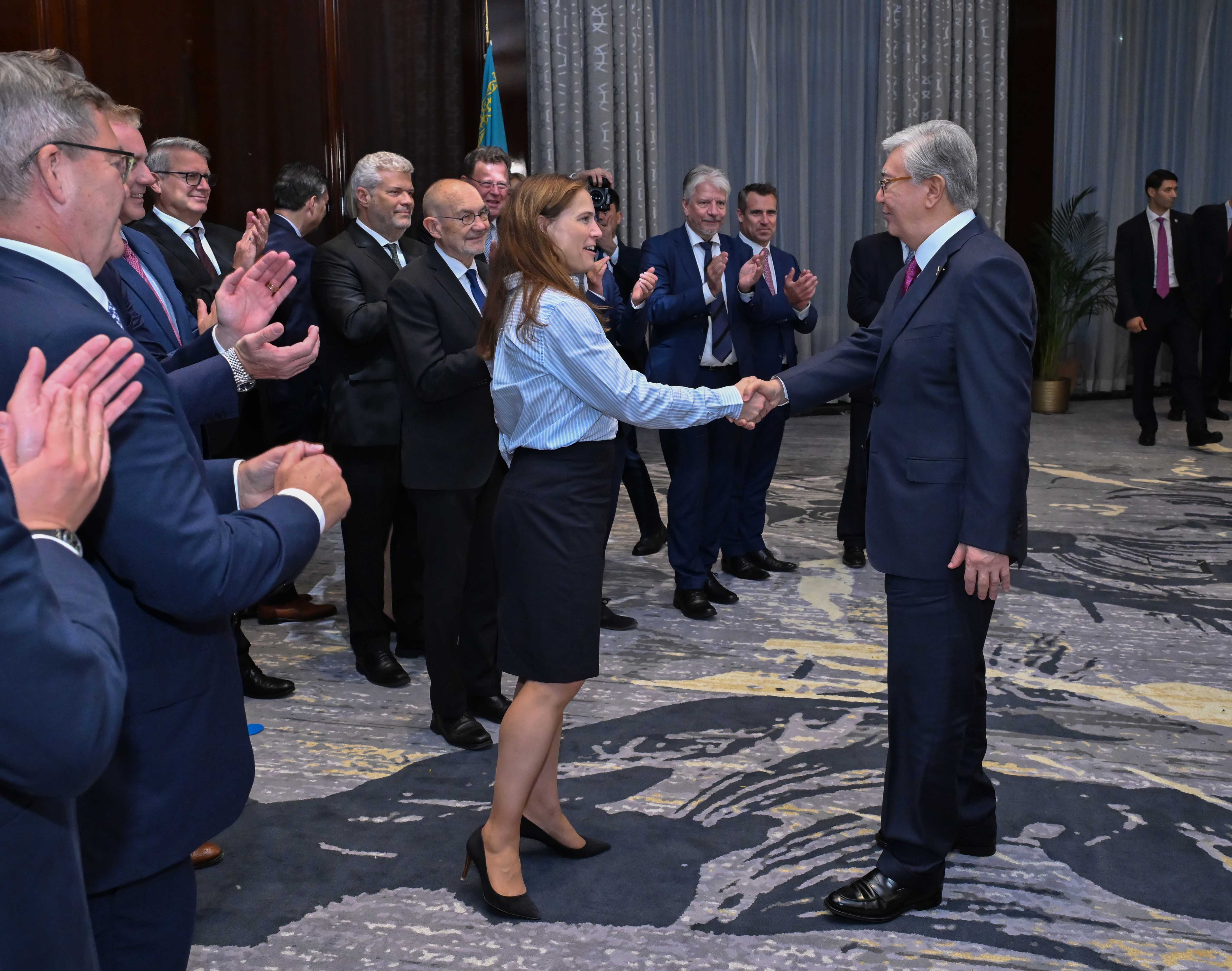Berlin, Germany
President Tokayev participated in a round table with business communities from Kazakhstan and Germany. The event was held under the auspices of the Eastern Committee of the German Economy.
In his address, the Head of State noted that despite geopolitical turmoil, bilateral trade between the nations increased by 25% to 2.8 billion dollars last year. He pointed out that German businesses have invested almost 6 billion dollars into Kazakhstan. Approximately 90% of these investments are in the non-resource sector. Currently, over a thousand companies with German capital operate in Kazakhstan.
President Tokayev expressed high regard for the German approach to conducting business, which is based on the principles of determination, precision, and responsibility. He also conveyed Kazakhstan's interest in establishing production facilities to create products that are "Made in Kazakhstan with German Quality".
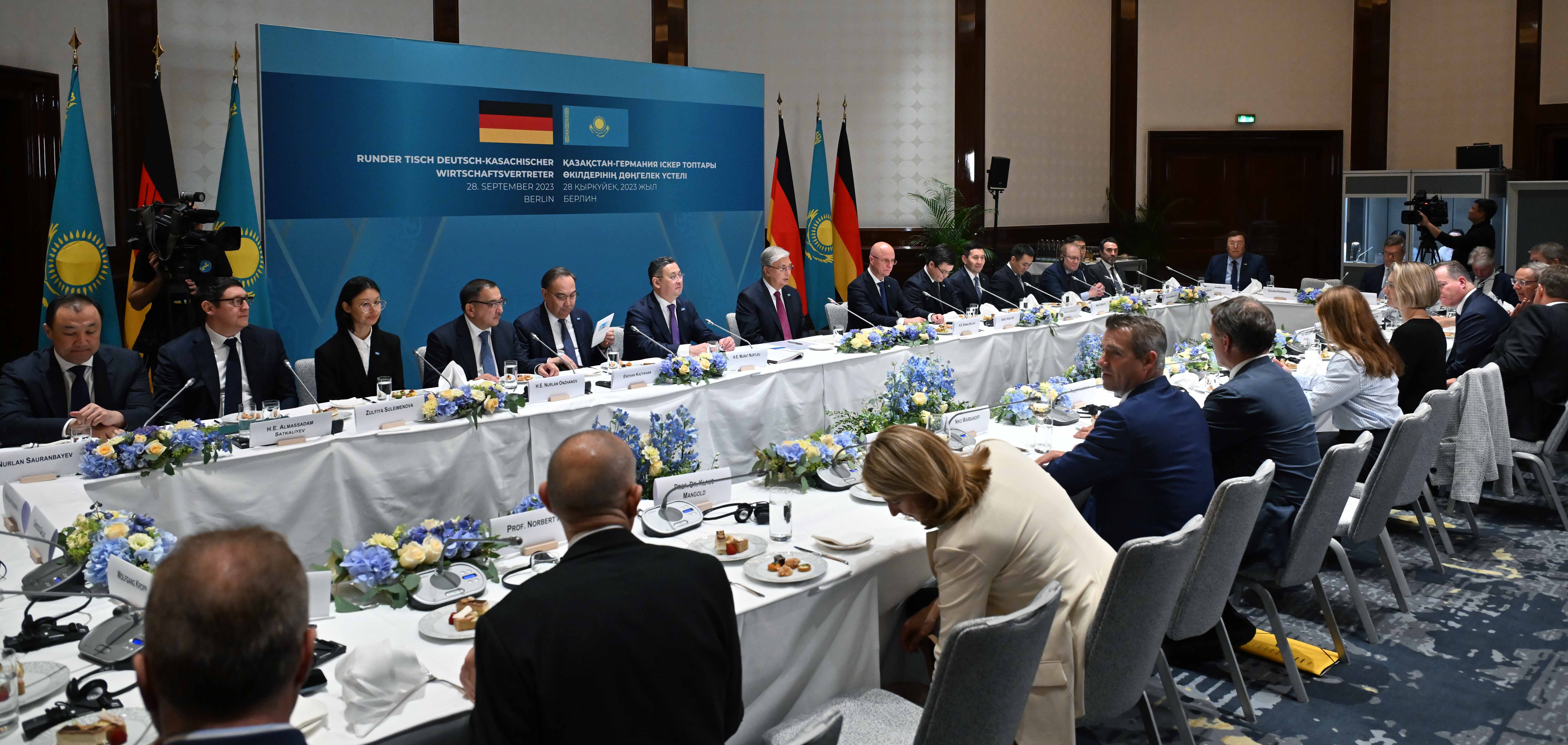
The Head of Stated outlined several promising areas of cooperation. He conveyed Kazakhstan’s readiness to be a reliable partner in supplying natural resources and critical raw materials, which German and broader European industries require.
– The global demand for critical materials and rare earth metals is expected to quadruple by 2040. The World Bank estimates that there are over five thousand unexplored deposits still present in Kazakhstan valued over 46 trillion dollars. That is why I have proposed to Chancellor Scholz the creation of a Consortium for the implementation of joint raw materials projects. This initiative, along with our existing intergovernmental partnership agreements, would bring our cooperation to the new level. I invite private German investors to join this Consortium, – The President noted.
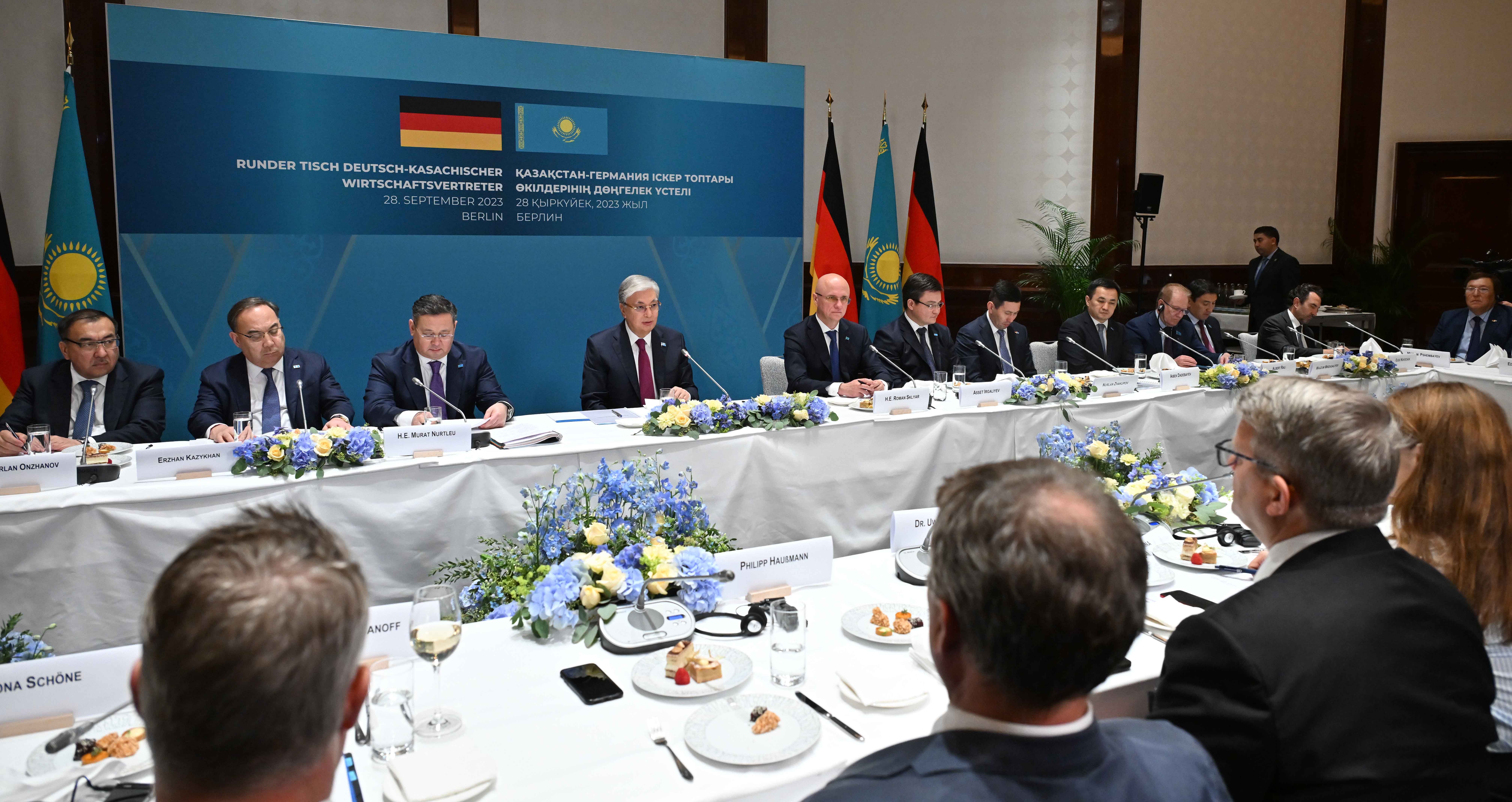
Another promising area for cooperation is renewable energy.
Kassym-Jomart Tokayev pointed out that Kazakhstan possesses all the prerequisites to become a leading global producer of green hydrogen. The country has already signed a 50-billion-dollar deal for green hydrogen production with the German-Swedish company, SVEVIND Group. This is one of the largest projects of its kind in the world. Subsequently, green hydrogen production can open the door to the production of green steel, aluminium, and other metals. The President expressed confidence that combining German technological solutions with Kazakhstan's natural and human resources can lead to significant results.
Utilizing the potential of transport and logistics is seen as another area for collaboration. The Head of State said that in the new geopolitical reality, the "Middle Corridor" is becoming increasingly important in facilitating connectivity between Europe and Asia.
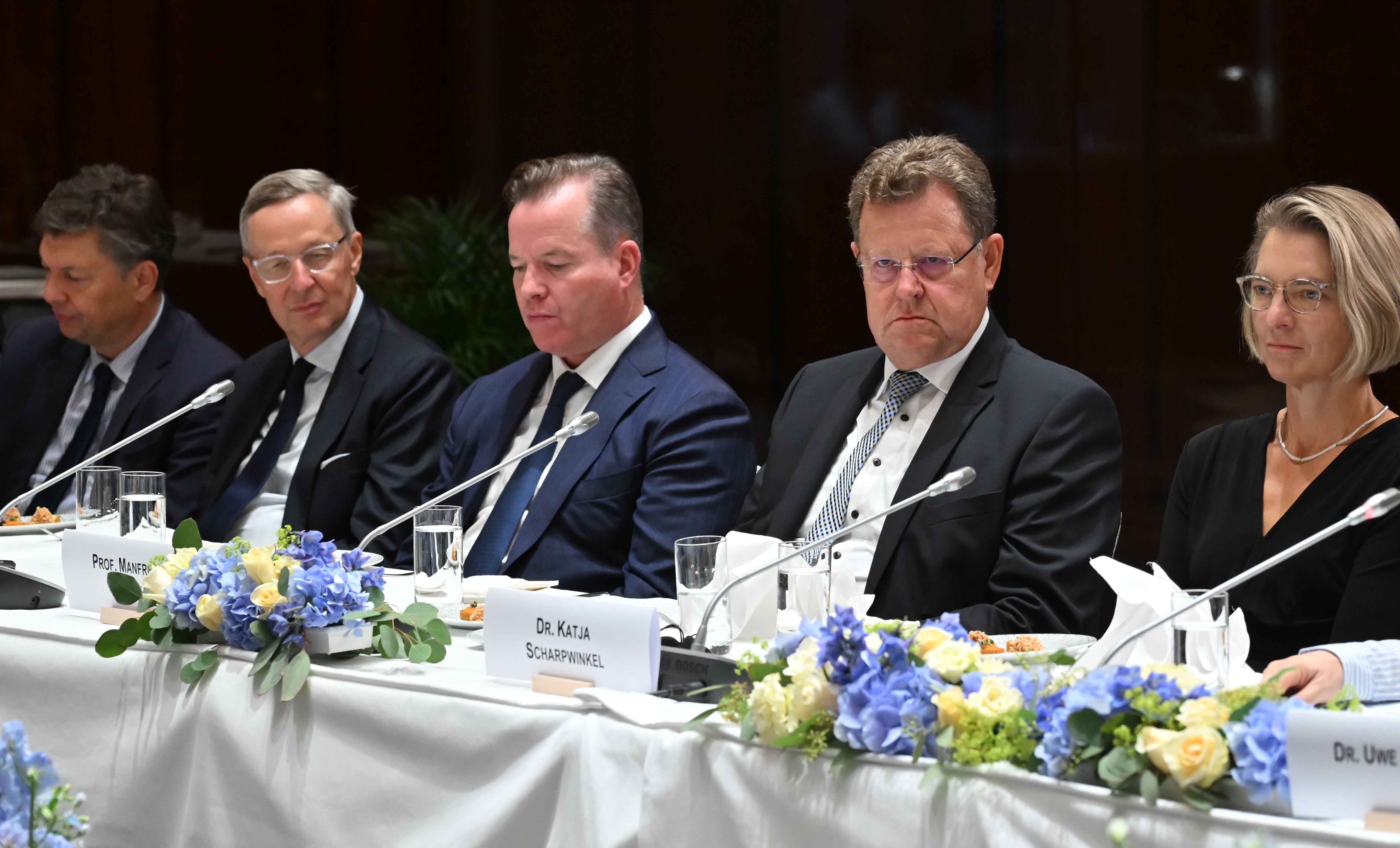
Furthermore, the President believes that there are significant opportunities for partnership within the agricultural sector.
– Kazakhstan plans to become a regional hub for food supply. To achieve this, we will establish an Interregional system of trade and logistics channels connecting production, storage and the distribution of products. Many German companies from a wide variety of fields can be involved in developing sustainable agriculture in Kazakhstan – from biotechnology and fertilizers to satellite sensing and artificial intelligence; from agricultural machinery, irrigation and the food industry to genetics and renewable energy, – The Head of State underlined.
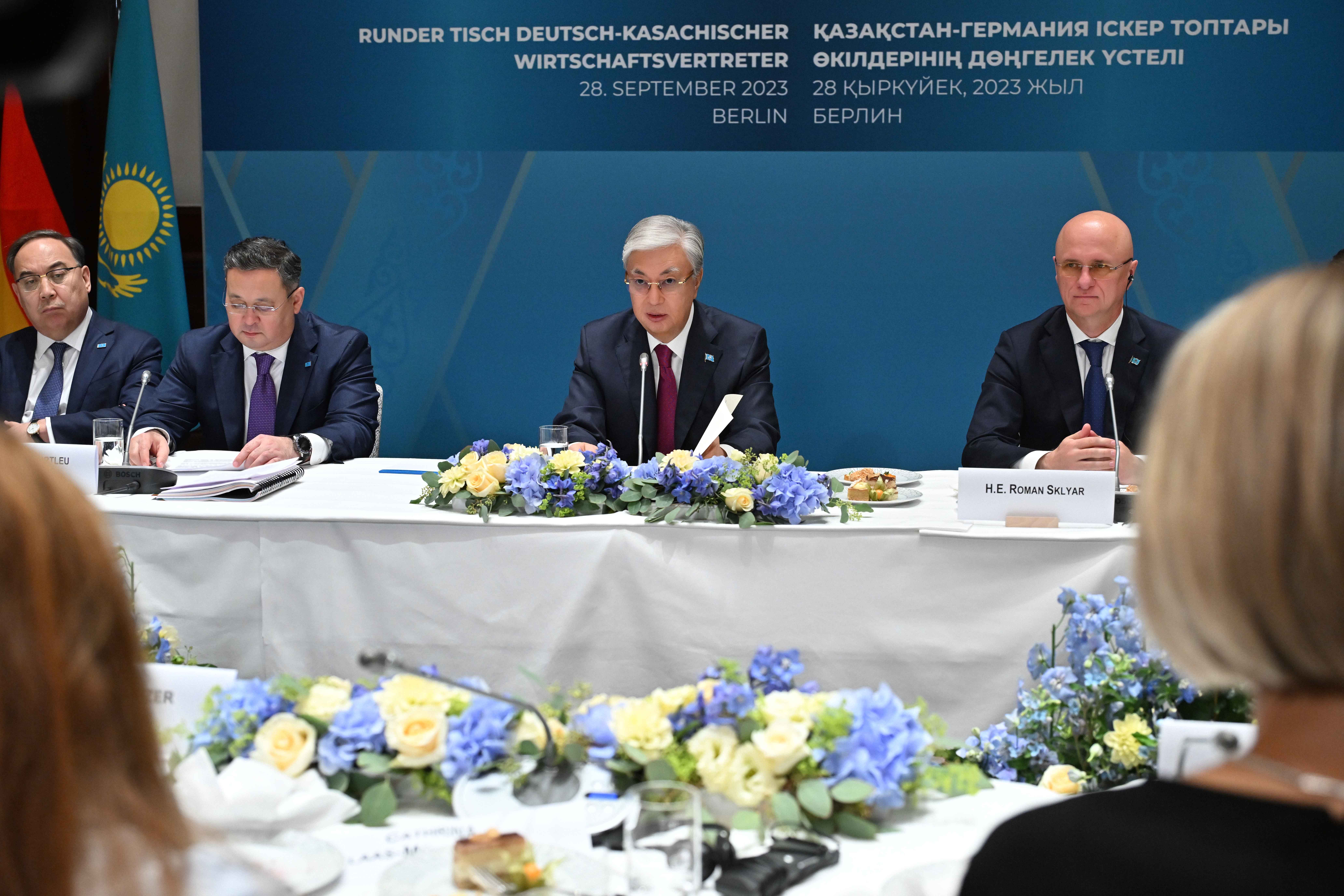
Another priority area for cooperation that Kassym-Jomart Tokayev identified is IT-technology. The President emphasized that Kazakhstan's digital transformation efforts have received global recognition. The UN has ranked the country’s e-government system in the top-30 list.
– We plan to increase our exports of IT products and services to 1 billion dollars and to strengthen our human capital by training 100 thousand globally competitive IT-specialists by 2025. We are open for various types of cooperation with our German partners, including the launch of R&D projects, startups, education, connectivity and others, – The President stated.
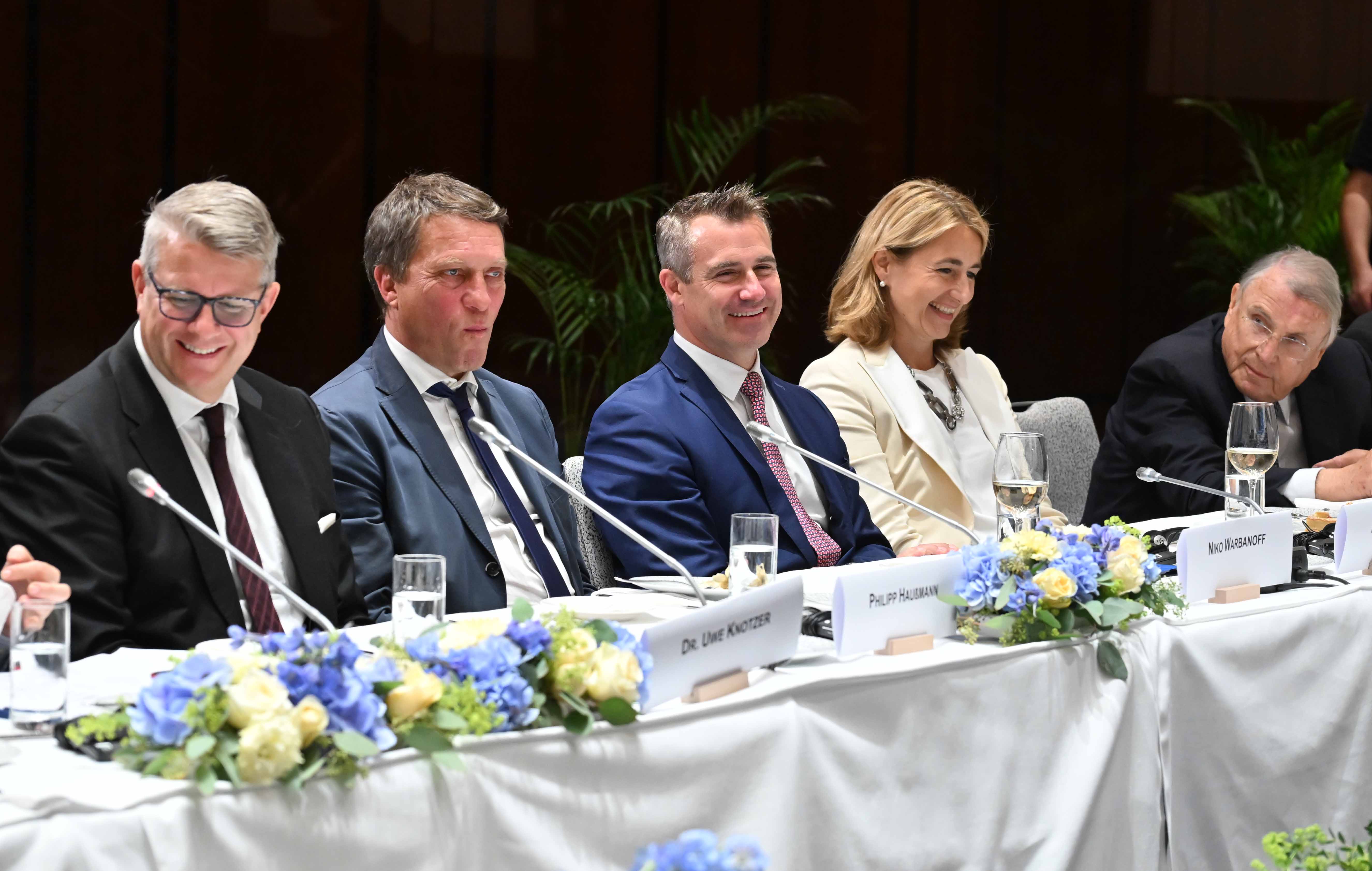
Cooperation in human capital development and raising investment are additional relevant areas where the two countries can enhance their collaboration. For human capital development, the Kazakhstan-German Institute of Engineering at the Caspian State University and the Kazakhstan-German Institute of Science and Technology at the East Kazakhstan Technical University have already been initiated. Regarding investment, Kazakhstan offers extensive opportunities for foreign investors through the Astana International Financial Centre (AIFC) platform.
President Tokayev encouraged German business leaders to actively participate in the implementation of projects aimed at diversifying Kazakhstan's economy, including by launching new industries and introducing advanced German technologies.
At the event, presentations were delivered by Cathrina Claas-Mühlhäuser, Chairwoman of the Board of the Eastern Committee of the German Economy, Wolfgang Niedermark, Member of the Board of the Federal Association of German Industry (BDI), and senior leaders from several major German firms, including Deutsche Bahn, Knauf, Wilo, BASF, Rhenus, Svevind, and others. They outlined their perspectives on the current state and future potential for collaboration with Kazakhstan in relevant economic areas.
The Eastern Committee of the German Economy is a regional initiative of the Federal Republic of Germany, established to engage with 29 countries across Central, Eastern and South-Eastern Europe, the South Caucasus, and Central Asia. The Eastern Committee is supported by the six leading associations of the German economy and has approximately 400 member companies.
